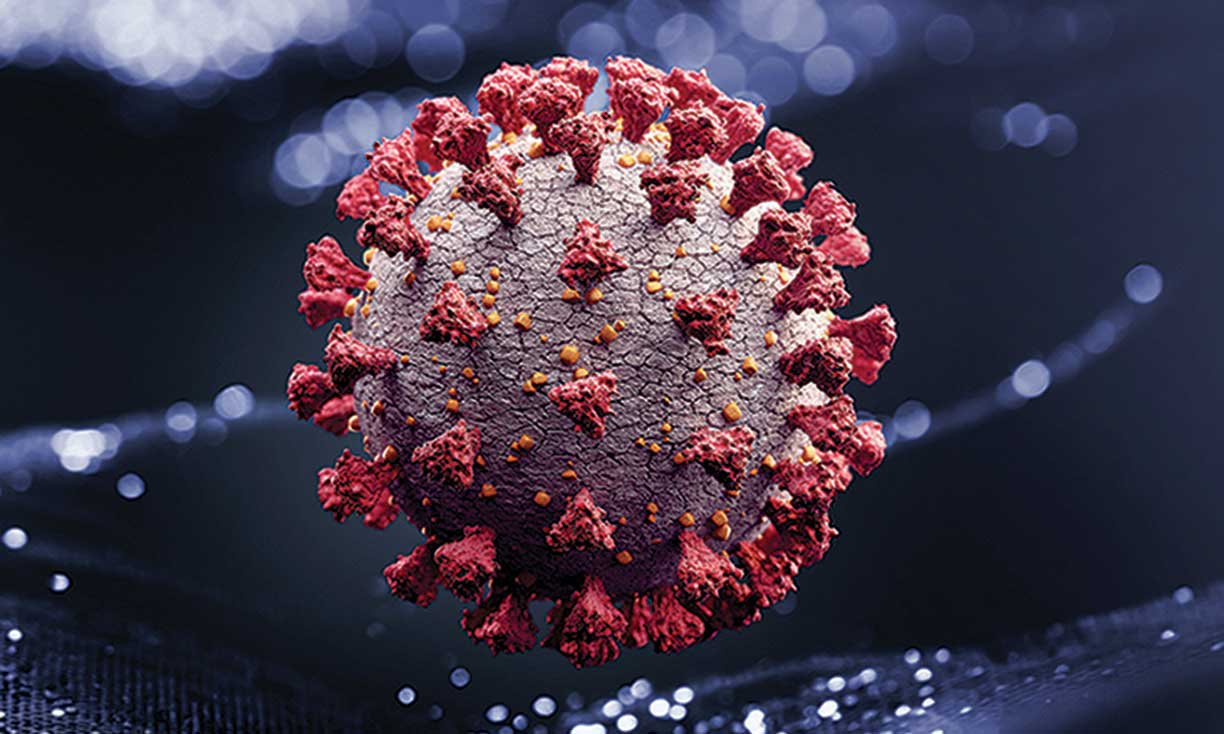COVID-19: Research Snapshots
As the COVID-19 pandemic passes the one-year mark, Princeton researchers and scientists continue to contribute to the body of knowledge about its effects in the long and short terms.
When it comes to persuading citizens to follow COVID-19 restrictions and guidelines, a group of international scholars, including ecology and evolutionary biology professor Daniel Rubenstein, found evidence that the most powerful argument lies not in coercion, but rather in changing people’s attitudes. Rubenstein and his collaborators tested behavioral-psychology measures such as exposure to expert advice and writing prompts meant to evoke cognitive dissonance on more than 3,100 people across seven countries. Published in Royal Society Open Science in August, the study asked participants to rank the most effective measures to protect against COVID-19, such as distancing and hand-washing. Next, participants were exposed to information about various measures and why they work, as well as writing exercises that challenged their assumptions. At the end of the survey, subjects had an increased appreciation for the various measures, even those they ranked last. The study calls for similar measures to be employed in public-health messaging.
When a patient is on a ventilator, doctors and other experts must closely monitor factors such as air pressure, volume, and breath rate. As the pandemic surged, and medical experts were stretched thin, computer science professor and director of Google AI Princeton Elad Hazan, and Daniel Cohen, professor of mechanical and aerospace engineering, wondered: Could some of that monitoring be handled by artificial intelligence? Cohen had recently built a low-cost ventilator for which he is seeking manufacturing partners and regulatory approval. The team relied on this device and used machine learning to discover patterns that would lessen the need for stringent patient monitoring. The researchers are preparing a paper about their new control system, which can be used with all ventilators, not just Cohen’s.
In March, a team of scholars including Jacob N. Shapiro, professor of politics, released a report on Princeton’s Empirical Studies of Conflict website about online COVID-19 disinformation trends. The report, funded by a grant from Microsoft, characterizes the sorts of disinformation observed in 5,613 stories online across the globe (divided into 11 regions) from the earliest days of the pandemic until December 2020. Some regions’ false news played into preexisting racial, religious, and political tensions and included claims of false cures. Six of the 11 regions’ false stories dealt with government responses, but only in the United States, South Asia, and Russia did false narratives originate with politicians or state-run media. The authors found robust fact-checkers in all the regions and expressed hope that their report will encourage increased support for those efforts.












No responses yet